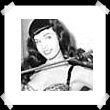| View previous topic :: View next topic |
| Author |
Message |
JacktheCat

Joined: 08 May 2004
|
 Posted: Sat Mar 05, 2005 4:03 am Post subject: Understanding the Korean Mindset Posted: Sat Mar 05, 2005 4:03 am Post subject: Understanding the Korean Mindset |
 |
|
Understanding the Korean Mindset - Seeking Expert Help
Maybe this board is the wrong place to ask, but I'm hoping some of the more erudite members could help me out.
My quest to understand the Korean mindset continues, despite being told it's impossible by both waegukin and hangukin. Perhaps I am more stubborn than the Koreans.
Anyway, I was wondering if someone could help more fully explain the following Korean cultural ethos's to me.
1. keunki
2. ko jip
3. eonkeun
4. sun jong
5. bokjang
6. nunchi
7. che myeon
Thanks for your help. |
|
| Back to top |
|
 |
Harpeau
Joined: 01 Feb 2003
Location: Coquitlam, BC
|
 Posted: Sat Mar 05, 2005 5:39 am Post subject: Posted: Sat Mar 05, 2005 5:39 am Post subject: |
 |
|
All the best to you buddy. wish I could be of help.
When some bozo says to me that you cannot understand the Korean mindset, I say back to them~ you cannot understand the "HAN" that the US. nation was feeling on 9/11. Shuts them up every time. |
|
| Back to top |
|
 |
peppermint

Joined: 13 May 2003
Location: traversing the minefields of caddishness.
|
 Posted: Sat Mar 05, 2005 5:51 am Post subject: Posted: Sat Mar 05, 2005 5:51 am Post subject: |
 |
|
| Nunchi I sort of get. I'm told it refers to being able to predict someone's actions from the look on their face, but it seems to be applied to a group as often as not. That's the part I haven't managed to figure out yet. |
|
| Back to top |
|
 |
Derrek
Joined: 15 Jan 2003
|
 Posted: Sat Mar 05, 2005 7:03 am Post subject: Posted: Sat Mar 05, 2005 7:03 am Post subject: |
 |
|
Just take a good hard look at an angry male kindergarten kid. See how he acts when he doesn't get what he wants.
Then imagine that kid doing the same thing in 30 years, with a dose of Confucism face-saving.
Then you will understand the Korean male mindset, anyway. |
|
| Back to top |
|
 |
ajuma

Joined: 18 Feb 2003
Location: Anywere but Seoul!!
|
 Posted: Sat Mar 05, 2005 8:49 am Post subject: Posted: Sat Mar 05, 2005 8:49 am Post subject: |
 |
|
"Nunchi" I understand but it's difficult to explain. There are a lot of words in Korean that you have to understand intuitively. There aren't any single words that exactly describe them.
In fact, ajuma is one. We all know what/who an ajuma is...but there isn't ONE word in English to describe her! And even if you DO use English words, it STILL doesn't exactly explain her!!
Can ANYONE give a good ENGLISH definition of "ajuma"? |
|
| Back to top |
|
 |
mithridates

Joined: 03 Mar 2003
Location: President's office, Korean Space Agency
|
 Posted: Sat Mar 05, 2005 8:57 am Post subject: Posted: Sat Mar 05, 2005 8:57 am Post subject: |
 |
|
| Wig-hair lady? |
|
| Back to top |
|
 |
jinglejangle

Joined: 19 Feb 2005
Location: Far far far away.
|
 Posted: Sat Mar 05, 2005 9:04 am Post subject: Posted: Sat Mar 05, 2005 9:04 am Post subject: |
 |
|
AJUMA:
A. Attitude �ִ� woman
J. Jumps in front of
U. U, in line
M. Middleaged Korean women
A. Are often A-holes!
But there are nuances to all of that or course. Cuz it's a "feeling" language. |
|
| Back to top |
|
 |
Canucksaram
Joined: 29 Apr 2003
|
 Posted: Sat Mar 05, 2005 10:49 am Post subject: easy definition Posted: Sat Mar 05, 2005 10:49 am Post subject: easy definition |
 |
|
| A good English definition of "ajumma"? Sure! It's easy: "old b i t c h". |
|
| Back to top |
|
 |
peemil

Joined: 09 Feb 2003
Location: Koowoompa
|
 Posted: Sat Mar 05, 2005 3:35 pm Post subject: Posted: Sat Mar 05, 2005 3:35 pm Post subject: |
 |
|
| Cow. |
|
| Back to top |
|
 |
ajuma

Joined: 18 Feb 2003
Location: Anywere but Seoul!!
|
 Posted: Mon Mar 07, 2005 5:28 pm Post subject: Posted: Mon Mar 07, 2005 5:28 pm Post subject: |
 |
|
   
Ok, I guess I asked for it!    |
|
| Back to top |
|
 |
jinglejangle

Joined: 19 Feb 2005
Location: Far far far away.
|
 Posted: Mon Mar 07, 2005 6:23 pm Post subject: Posted: Mon Mar 07, 2005 6:23 pm Post subject: |
 |
|
| ajuma wrote: |
   
Ok, I guess I asked for it!    |
Well, no, I wouldn't take these as flames on you.
Not unless you're really an A-hole 40 something Korean woman. |
|
| Back to top |
|
 |
Canucksaram
Joined: 29 Apr 2003
|
 Posted: Mon Mar 07, 2005 7:40 pm Post subject: Spot on! Posted: Mon Mar 07, 2005 7:40 pm Post subject: Spot on! |
 |
|
Spot on, Derrek. The majority of native-born men in this country fit that bill far too closely for comfort. Don't forget the all-pervasive general lack of critical thinking skills in Korea; critical thinking seems not to be taught here.
Exceptions do exist, however, and it's important not to forget about them. I was quite happily surpised a couple of years ago when some of LG VP's I was tutoring commented on the lack of critical thinking skills in the general Korean population and shook their heads in sorrow at the folly of the Korean education system and of their people. Each of the three men has sent their university-age children abroad to be educated in the West (wealthy enough to do it, lucky them) so that the youngsters would really learn what's needed to operate sucessfully in a modern, globalized economy. |
|
| Back to top |
|
 |
haywill22

Joined: 22 May 2004
Location: Tri-city area Chinhae, Masan, Chang-won
|
 Posted: Mon Mar 07, 2005 9:41 pm Post subject: Posted: Mon Mar 07, 2005 9:41 pm Post subject: |
 |
|
Not sure if I can qualify as an "expert" but my understanding of your words are:
Keunki: A personality trait that drives one to constantly work; an overachiever, in Korean culture overachieving is a positive trait.
Ko jip: An individuals unique personality, sometimes a specific trait within that personality. A child who constantly says no to his parents has a bad Ko jip.
Eongeun: Similar to nunchi. Eongeun defined is the action of keeping your emotions internalized while your outward appearance gives no clue of your true feeling. In example, Koreans often say: He seemed pleased but I saw his Eongeun, he was disapointed.
Sun Jong: To obey parents or elders, usually without question. This is a very positve virtue to have in Korea.
Bokjang: I may not understand your romanization of this word. Bokjang is a standard set of clothing for an organization. Usually an uniform, there maybe a secondary psych meaning for this that I don't know. To guess, I would say it is a word for their "herd mentality"
Nunchi: To understand what a person is wanting or trying to communicate without actually hearing them speak, in a way it's a measurement. If you have heard Koreans speaking to each other, and you had a good "premonition" of what they were talking about, even though you can't understand Korean, the Koreans would say you have high Nunchi.
Che Myeon: In America we have a saying "Keeping up with the Jones's".
Traditional meaning: If you were to go to a Korean's house and they were dirt poor, but they prepared an elaborite meal with lot's of side dishes, that was Che Myeon, a desire to deliver a standard appearance at a sacrifice to themselves. Che Myeon is a "positve" action in Korea. A woman who is invited to a wedding but is so poor she can't afford the correct Hanbok to wear, would be critizized by other Koreans, asking Where is your Che Myeong, how could you show up here and show everybody how poor you are.
Now a days the meaning has extended to be very simular to the western meaning. Purchasing luxary items, new cars, or hiring a maid because you're neighbors are doing it. It no longer means sacrificing for a cultural standard, but sacrificing to maintian a certain status.
Those are my understandings, but I could very well be wrong. You may already have known the definitions of the words and you were looking for discussion as to why these attributes are a part of the Korean psyche/culture... in that case I apologize. |
|
| Back to top |
|
 |
Paji eh Wong

Joined: 03 Jun 2003
|
 Posted: Tue Mar 08, 2005 3:43 am Post subject: Posted: Tue Mar 08, 2005 3:43 am Post subject: |
 |
|
| Quote: |
| My quest to understand the Korean mindset continues, despite being told it's impossible by both waegukin and hangukin. Perhaps I am more stubborn than the Koreans. |
Good for you.
| Quote: |
| Understanding the Korean Mindset - Seeking Expert Help |
I don't think of understanding Koreans as a body of knowlege; I think it's more of a process.
You're on your own, my son. |
|
| Back to top |
|
 |
canadian_in_korea
Joined: 20 Jun 2004
Location: South Korea
|
 Posted: Tue Mar 08, 2005 3:57 am Post subject: Posted: Tue Mar 08, 2005 3:57 am Post subject: |
 |
|
| ajuma wrote: |
"Nunchi" I understand but it's difficult to explain. There are a lot of words in Korean that you have to understand intuitively. There aren't any single words that exactly describe them.
In fact, ajuma is one. We all know what/who an ajuma is...but there isn't ONE word in English to describe her! And even if you DO use English words, it STILL doesn't exactly explain her!!
Can ANYONE give a good ENGLISH definition of "ajuma"? |
I asked my husband this...because I've heard it being used in so many different contexts...he said it means "married woman"....it can mean "powerful woman"...you hear people sometimes say ajuma power.....he said it can mean a woman who doesn't take care of herself anymore....kind of the type who after they get married they spend all their time in sweats....no make up...that kind of thing. So it really depends on the context i guess.... |
|
| Back to top |
|
 |
|

